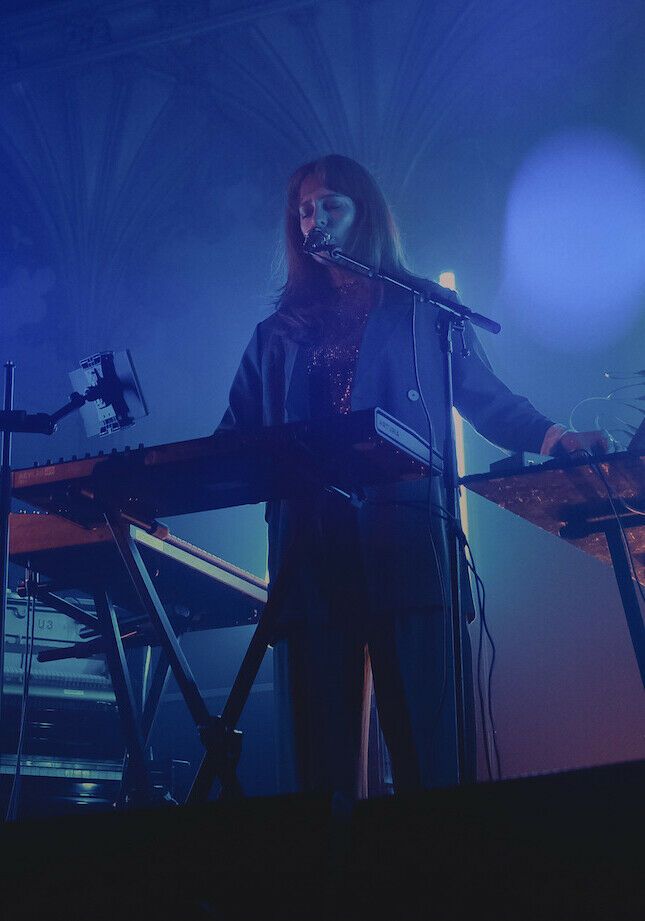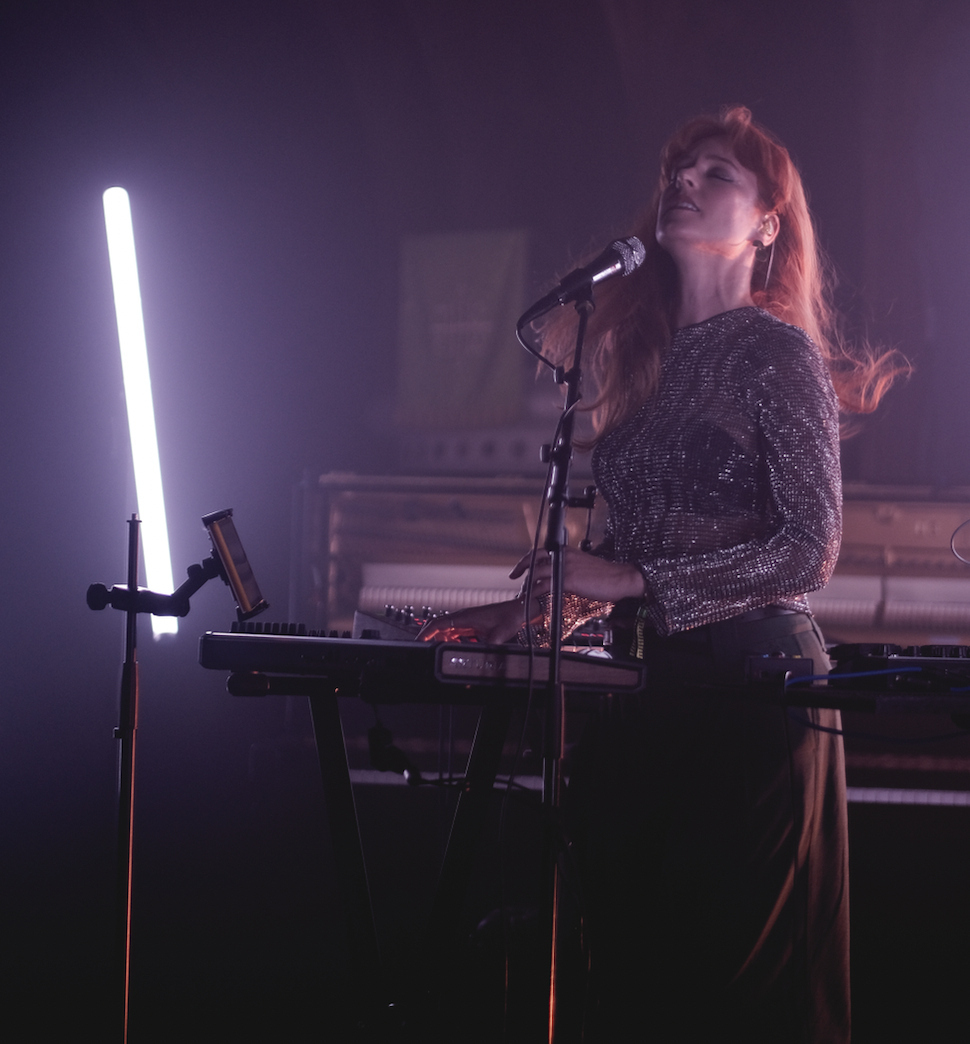Earlier this month, award-winning artist, composer, and producer Hannah Peel was unveiled as the new president of The F-List For Music, an all-encompassing talent directory for women and non-binary musicians that has since snowballed into a vital resource and support network for the community. Peel sat down with Headliner for a chat about her new role and her illustrious career so far.
The F-List for Music was set up by long-time equality campaigner Vick Bain in the midst of the pandemic as a support network for women and non-binary musicians. Despite repeated research and statistics demonstrating such need, The F-List is the only nation-wide organisation supporting women and gender diverse musicians across all genres of music in the UK.
Succeeding classical composer Professor Shirley J Thompson, who was preceded by Brix Smith and Anoushka Shankar in the role, Peel is an acclaimed artist, composer, producer and radio presenter. Her solo record career includes the shortlisted 2021 Mercury Music Prize album Fir Wave; Awake But Always Dreaming; and the space-themed Mary Casio: Journey to Cassiopeia, scored for synthesisers and a 30 piece colliery brass band.
Following her Emmy-nominated score for Game Of Thrones: The Last Watch, her soundtrack for TV thriller, The Deceived won a 2022 Royal Television Society NI award and the Music Producer’s Guild’s best Original Score Recording of 2021. In 2023 she won the Best Television Soundtrack category at The Ivor Novello Awards for The Midwich Cuckoos. A regular collaborator with Paul Weller, she contributed arrangements to his no.1 albums On Sunset and Fat Pop and last year released The Unfolding with Paraorchestra, the world's only disabled and non-disabled integrated orchestra which went straight to No.1 in the UK Classical Charts.
“It’s such an honour to follow in the footsteps of such amazing people,” beams Peel, commenting on her appointment as president from her North Yorkshire studio. “I still feel a bit in shock. It’s an ingrained thing that I feel like the underdog, so to be asked to do something like this is amazing.
“I first became a part of The F-List and registered for it during the pandemic when it was set up. Then it was just a database for female musicians with a list of what your skills were in order to promote work. It was a directory, so it was great to go on there and see cellists, people playing the lute, and as a composer it’s a great source. Since then it’s become a support network that does events, and it offers a sense of community.”
She continues: “When I started out self-releasing records as I was unable to get on a label, I had a couple of friends who I started a business breakfast meeting with every two weeks. My brother, who is in the building industry, used to do this. Once a week they would meet up at 6.30 in the morning and everyone in that industry would scout their skills and people would share business. I thought, ‘we don’t have anything like that in the music industry’. And the one thing that struck us after a couple of months was that we were all self-releasing and we were all women. So when The F-List started I was really passionate about what they do because it was much bigger than our little coffee morning and it really connected people from across the UK, so to represent that wealth of talent is really amazing.”
Peel also paid tribute to the work Bain has done in not just launching but evolving The F-List at pace.
“We hadn’t worked together or crossed paths before but what she has set up with The F-List really is incredible,” she says. “She’s forming partnerships and creating opportunities, and that is what is driving the F-List.”
As a composer for film and TV but with a traditional pop background, Peel has been able to carve out a niche for herself as one of the industry’s most versatile talents. From childhood, she’s been possessed of a passion for telling stories through music, which continues to serve her well to this day.




